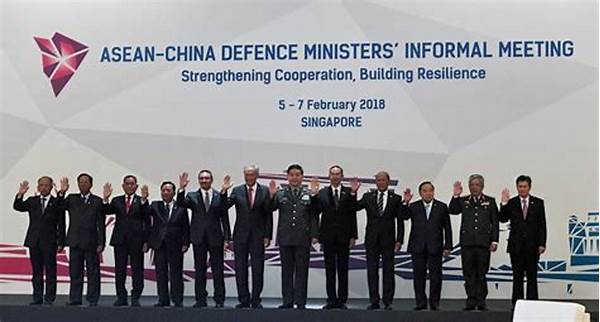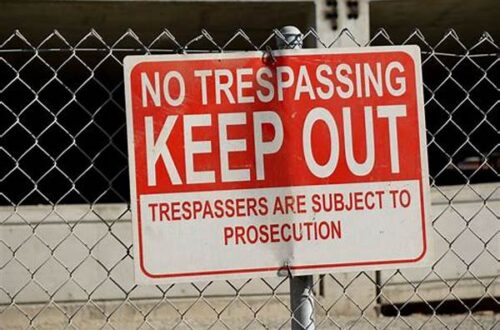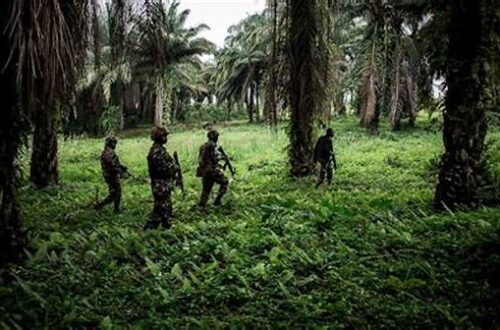Importance of Regional Security and Defense Cooperation
Regional security and defense cooperation has become an imperative in the contemporary strategic landscape. The threats faced by nations are increasingly complex and transnational in nature, necessitating a collective approach to security. Many regions around the world are enhancing their collaborative efforts through formal alliances or informal agreements to address a range of challenges, from terrorism and cyber threats to regional conflicts and humanitarian crises. The focus on regional cooperation enables countries to pool resources, share intelligence, and develop cohesive strategies to protect their interests and sovereignty.
Efforts to foster regional security and defense cooperation often involve joint military exercises, shared defense infrastructure, and coordinated policy frameworks. Such collaborative initiatives not only bolster military readiness but also enhance diplomatic ties among participating nations. By working together, member states can better deter potential aggressors, manage security risks, and promote stability in their respective regions. These alliances, while primarily focused on defense, can also pave the way for economic collaborations and cultural exchanges, further strengthening the bonds between countries.
In many parts of the world, regional organizations serve as the backbone of security cooperation. Organizations such as NATO, the African Union, ASEAN, and others play a pivotal role in mediating conflicts, supplying peacekeeping forces, and offering platforms for dialogue among member states. Regional security and defense cooperation facilitated by these entities is essential for maintaining international peace and security, as it allows regions to address their unique challenges with tailored solutions.
Key Elements of Regional Security and Defense Cooperation
1. Joint Military Exercises: These exercises help improve interoperability between forces, demonstrating the benefits of regional security and defense cooperation in action.
2. Intelligence Sharing: Nations involved in regional security and defense cooperation benefit from shared intelligence, allowing for more informed decision-making.
3. Defense Infrastructure: Collaborative frameworks often lead to shared usage of defense facilities, which demonstrates the logistical aspects of regional security and defense cooperation.
4. Policy Coordination: Aligning defense policies across nations is crucial for effective regional security and defense cooperation, ensuring a unified stance on security issues.
5. Crisis Management: Regional security and defense cooperation facilitates coordinated responses to crises, reinforcing stability and peace in the region.
Challenges in Regional Security and Defense Cooperation
Despite the significant advantages, regional security and defense cooperation faces several challenges. Divergent national interests, political tensions, and historical grievances can impede collaborative efforts. Nations may be hesitant to share sensitive information or resources, resulting in incomplete or fragmented cooperation. Furthermore, external influences or the actions of powerful states can disrupt regional alliances and impact their effectiveness.
Effective communication and diplomacy are crucial for overcoming these hurdles. Establishing mutual trust and understanding among participating nations is imperative for the success of regional security and defense cooperation. Continuous dialogue, transparency in intentions, and the development of conflict resolution mechanisms are essential components of a robust cooperative framework. These elements help in harmonizing differences and building a foundation for enduring collaboration.
Nevertheless, the benefits of regional security and defense cooperation outweigh its challenges. By working together, countries can harness collective strength to address security threats more effectively than they could in isolation. As globalization continues to interconnect societies, the importance of regional security and defense cooperation is likely to grow, further highlighting the need for collaborative approaches in safeguarding regional and global peace.
Strategies for Enhancing Regional Security and Defense Cooperation
1. Building Trust: Establishing trust between countries is essential for successful regional security and defense cooperation to mitigate suspicions and promote transparency.
2. Diplomatic Engagement: Continuous diplomatic dialogue ensures that member states remain committed to their cooperative agreements, essential for sustaining regional security and defense collaboration.
3. Capacity Building: Strengthening the military and administrative capabilities of all member states enhances the effectiveness of regional security and defense cooperation initiatives.
4. Regular Evaluation: Periodic assessment of cooperative measures ensures that regional security and defense cooperation evolves with changing security dynamics.
5. Educational Exchanges: These programs allow military personnel from different nations to understand diverse operational tactics, improving regional security and defense cooperation.
6. Cultural Understanding: Promoting cultural exchanges fosters mutual understanding and reinforces the cooperative spirit within regional security and defense cooperation frameworks.
7. Economic Integration: Economic ties can strengthen political alliances, providing a firm foundation for regional security and defense cooperation.
8. Technology Sharing: Collaborative technological advancements can bolster regional defense capabilities, exemplifying the need for regional security and defense cooperation.
9. International Collaboration: Engaging with international partners can enhance the scope and capabilities of regional security and defense cooperation.
10. Crisis Simulations: Regularly conducting simulations prepares member states for coordinated responses during actual regional security threats, augmenting cooperative initiatives.
Future Prospects for Regional Security and Defense Cooperation
As the geopolitical landscape evolves, regional security and defense cooperation will continue to adapt to new challenges. The increasing prevalence of cyber threats, the shifting balance of power, and the emergence of new kinds of warfare necessitate continuous innovation in cooperative strategies. Nations will need to consider the integration of advanced technologies into their cooperative frameworks, enabling more agile and effective responses to threats.
Moreover, expanding cooperative networks to include non-state actors, such as multinational corporations or NGOs, can provide additional resources and expertise. The inclusion of civil society and private sector actors could offer new perspectives and enhance the overall resilience of regional security and defense cooperation. This inclusive approach ensures that cooperative efforts remain comprehensive and reflective of a wider array of interests and capabilities.
In conclusion, regional security and defense cooperation remains a cornerstone of international stability. By refining strategies, overcoming challenges, and embracing innovation, regions can fortify their defenses and contribute to global peace. The commitment to such collaboration will be pivotal in navigating the complex security environment of the future, emphasizing the enduring relevance and necessity of regional cooperation.
Conclusion of Regional Security and Defense Cooperation
In summation, regional security and defense cooperation plays a critical role in safeguarding nations against evolving security threats. The collaborative nature of such cooperation fosters stronger diplomatic ties, shared resources, and unified responses to various challenges. By integrating strategies that promote trust, technological advancements, and inclusive engagement, regions can enhance their collective security capabilities.
Ultimately, the future of regional security and defense cooperation hinges on the ability of nations to adapt to an ever-changing global landscape. By engaging in continuous dialogue and embracing innovative solutions, countries can ensure the success of cooperative initiatives. The collective strength garnered through regional security and defense cooperation will remain a vital element in securing peace and prosperity for member states, underscoring its importance in the international community.





